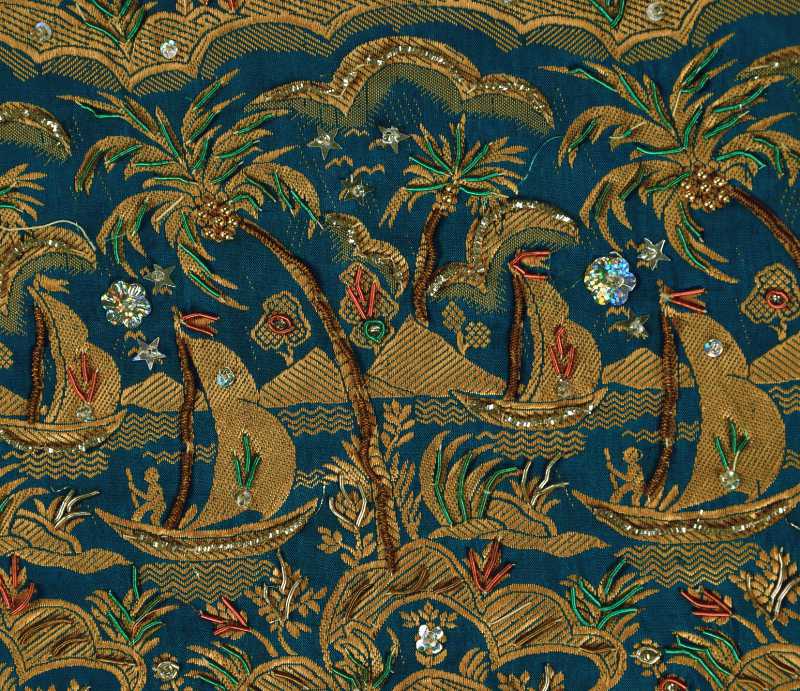===
0875,
9
===

=== |
 |
fart̤ : 'Excess, extravagance, exorbitance; exceeding degree; superfluity; abundance'. (Platts p.779)
pāṛnā (with pārnā as a variant): 'To let fall, cause to fall, to knock or throw down; to kill'. (Platts p.217)
FWP:
SETS
MOTIFS
NAMES
TERMS == AFFINITY; THEMEThe speaker has been in his own boat, but he isn't there any longer. The boat has fallen apart, its planks have floated off in all directions-- the speaker can't possibly keep track of them. They are long gone-- 'in the water'. Of course, we automatically think of the water of the deep, turbulent sea, and the many ways in which it could cause a shipwreck. But the first line has made it clear that the speaker has generated his own salt water and caused his own shipwreck: he has wept so excessively or extravagantly that he himself has caused his boat to disintegrate and its planks to float away to parts unknown.
The speaker is reporting past events-- but from what vantage point? Even though his boat is utterly lost, he doesn't seem to have drowned. But neither does he have any power to rectify the situation: he rejects the very possibility that he could even know in which direction(s) the planks of his boat have gone. Perhaps he's just drifting along in the flood of tears and ocean waves.